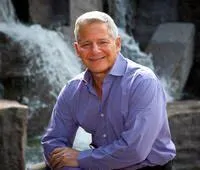
New patients are usually surprised to find they are more able to open up and talk about very personal issues than they expected. I work to create an atmosphere in which patients feel safe and supported so that they can talk about the vulnerable issues.
Compared to most therapists, I am very active, involved and personal in therapy. I do not just sit back and listen. I go beyond listening and help motivate patients to change.
Understanding the source of our problems is necessary but not sufficient for change. True change requires not only insight but also the motivation or drive to make the change happen. All of us are ambivalent to some degree about changing how we live life. The healthier part of us wants to change but the more defended part of us wants to stay with what has become familiar and fears what will happen with change. In my role as therapist, I ally with the healthy part of the patient that wants change and help the patient overcome their resistance to change.
In therapy, I generate "heat" by giving honest, direct feedback in a way that confronts the patient with their behavior. For example, in couples therapy, I might say, "While I understand you feel badly treated by your spouse, the way you are responding is making it worse. Your defensiveness is only serving to alienate your spouse more. If I was your spouse, I would feel like retreating rather than listening to you. Now, what if you tried responding in a more vulnerable, less defensive manner that invites your spouse to hear you?" Relating to others in an effective way seems like something that that should be natural to humans but it is not, it needs to be learned. Most patients need to unlearn some ineffective relationship behaviors and learn new ones.
I recommend group therapy to many individual patients. I have been leading psychotherapy groups for 40 years. Group is a powerful and effective mode for working on relationship problems. The type of group therapy I offer is very different from the support group that most people imagine when they hear of group therapy. In group, we don't just talk about relationships, we work on them "live". Feedback in group is like a surround-sound where you hear not only the therapist's feedback but also that of all the other group members. A patient's relationship issues have a way of showing up in group interaction helping the patient become aware of how their issues arise and how they affect other people. In group, I work directly with patients as they interact with other group members to identify ineffective relationship patterns and teach effective relationship skills. All of my groups are composed of both women and men.
My approach to therapy reflects my belief as an athlete that success in any endeavor requires pushing ourselves hard to overcome our limitations and problems. Like an athletic trainer or coach, I push patients to dig deep to find their "heat" and work hard to change and realize their goals.
To understand a patient’s problems and help them change, I use utilize the relationship between myself and the patient as both an assessment and teaching tool. The way patients interact with me in therapy shows me a lot about how they interact with others and create problems in relationships. In my relating to a patient, I am often modeling more effective ways for the patient to do their own relationships.
I may use my own life experiences or those of people I know to illustrate something I want to teach a patient. Being willing to share my own struggles in relationships has proven to be one of the most effective ways to teach and motivate patients as they work on their own struggles.
I work with women and men in individual therapy and group therapy. For women, working with a male therapist offers the opportunity to gain use the therapist-patient relationship to work on past and present relationship issues with men. Women with issues with their fathers and male siblings are often better able to work on those issues with a male therapist than with a female therapist. The trust that develops in the therapist-patient relationship can be instrumental in helping women to be able to trust men in their lives.
In therapy:
I show people what they do that causes their problems or prevents them from getting more out of their lives.
I help them work through their ambivalence and resistance to change their lives.
I teach them what they need to do to find their natural "heat" so they can make lasting changes in the way they do relationships and live life.


